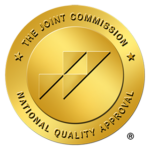Home / What We Treat /
Home / What We Treat / Alcohol Outpatient Rehab for Addiction in St. Louis
Alcohol is one of the most used substances in the world, and among the most common substance use disorders in the U.S. Alcohol addiction, or alcohol use disorder, is characterized by an inability to control alcohol use, despite negative effects on your life.
What Is Alcohol?
Ethanol, or alcohol, is a central nervous system depressant found in alcoholic beverages like beer, wine, and spirits. It can affect mood, behavior, and coordination, and drinking alcohol in excess can cause serious health problems.
In the short term, alcohol can cause euphoria, reduced anxiety, and lower inhibitions, which is why it’s often used to relax, unwind, or socialize.[1] However, alcohol also impairs judgment, coordination, and reaction time.
The long-term effects of alcohol use are much more dangerous.[2] People who engage in chronic alcohol use can develop health problems like heart disease, liver disease, high blood pressure, and an increased risk of certain cancers. It can also negatively impact mental health.
Alcohol Addiction and Abuse
Many people can consume alcohol occasionally without harm, but for some, alcohol use is difficult to control. Chronic or excessive alcohol use increases the risk of alcohol dependence, addiction, and long-term health effects.
Alcohol use disorder, or alcohol addiction, is a pattern of alcohol use characterized by an inability to control drinking, a preoccupation with alcohol, and continued use of alcohol despite the problems it causes.[3] This disorder is also characterized by the need to drink more to get the same effects, or experiencing withdrawal symptoms when you stop drinking.
Unhealthy alcohol use can include any alcohol use that puts your health or safety at risk. According to the Centers for Disease Control and Prevention, moderate alcohol use is two drinks or less in a day for men or one drink or less in a day for women. However, there is no “safe level” of drinking.[4]
Alcohol use disorder, as defined by the Diagnostic and Statistical Manual of Mental Disorders (DSM-5), includes the following criteria:[5]

Alcohol Dependence Statistics
Alcohol dependence and addiction are not the same, but dependence can be part of an alcohol use disorder. Dependence refers to the body’s need to have alcohol to function properly, leading to withdrawal if you stop or significantly reduce your dose. Alcohol addiction has a behavioral component characterized by the inability to control alcohol use despite problems in relationships, work, school, or health.
According to the 2023 National Survey on Drug Use and Health (NSDUH), 28.9 million people ages 12 and older had alcohol use disorder in the past year.[6] This includes 16.8 million males ages 12 and older, 12 million females ages 12 and older, indicating an alcohol use problem that affects teens. Based on the same survey, 270,000 boys ages 12 to 17 and 487,000 girls ages 12 to 17 had alcohol use disorder in the past year.[7] The statistics span across different age groups and ethnic and socioeconomic backgrounds.
Alcohol use is also the leading preventable cause of death in the U.S. About 178,000 people die from excessive drinking each year.[8] About two-thirds of alcohol-related deaths were from chronic conditions that develop from heavy alcohol use over time, including several types of cancer, heart disease, and liver disease. Another one-third of alcohol-related deaths were from binge drinking or drinking excessively on one occasion, such as alcohol-related drug overdoses, alcohol poisoning (overdose), suicide, and motor vehicle crashes.
Dangers of Alcohol Withdrawal
Alcohol withdrawal occurs if you drink heavily and stop or significantly decrease your use. The symptoms can range from mild to severe and include:[9]
Some of these symptoms can be life-threatening, so it’s crucial to never try to quit alcohol “cold turkey” on your own. Medical detox is often needed to manage symptoms, monitor your health, and prevent complications, such as dangerous seizures. At Engage Wellness, we provide detox placement, referrals, and coordination to help clients find medical detox programs for withdrawal before entering addiction treatment programs.

Alcohol Outpatient Rehab Therapies
Alcohol use disorder is challenging to overcome and requires a comprehensive, personalized approach. Quitting “cold turkey” isn’t safe or effective. There’s a complex interplay of physical, psychological, and social aspects of substance use disorder that needs to be addressed.
At Engage Wellness, our alcohol outpatient rehab programs help you get the support you need to break free from alcohol addiction. We offer detox placement with referrals and coordination to ensure you find the right medically supervised facility.
After detox, you can enter our intensive outpatient program (IOP) for alcohol addiction, which offers comprehensive therapy and support multiple times a week, but you can still return home at night. If less intensive support is appropriate for you, outpatient treatment programs for alcohol addiction are a more flexible option that’s just as effective but allows you to balance your day-to-day responsibilities. You may also undergo medication-assisted treatment (MAT) for alcohol use disorder, which includes FDA-approved medications like naltrexone and acamprosate to reduce cravings, manage symptoms, and prevent relapse.
Depending on your treatment plan, you may undergo various treatment options:
01
Family therapy treats the family as a single unit to improve dynamics, address conflict with loved ones, and ensure a supportive environment for recovery.
02
Group therapy uses facilitated sessions with peers that focus on shared experiences, advice, and emotional support.
03
12-Step support groups, which are based on Alcoholics Anonymous (AA) principles to facilitate recovery through accountability and self-reflection.
04
Cognitive behavioral therapy (CBT) is an evidence-based therapy that focuses on identifying and changing unhelpful thought patterns and behaviors.
05
Dialectical behavioral therapy (DBT) is a skills-focused therapy that promotes emotional regulation and mindfulness.
06
Motivational interviewing (MI) is a counseling technique that encourages motivation by exploring and resolving ambivalence about recovery.
07
Eye movement desensitization and reprocessing (EMDR) is a therapeutic approach that addresses underlying trauma that may contribute to alcohol abuse.
08
Relapse prevention includes programs and strategies that focus on recognizing triggers, managing stress, and maintaining sobriety.
09
Holistic treatment includes meditation, yoga, nutrition, acupuncture, or art therapy to support wellbeing.
10
Veterans programs are tailored to the needs of military veterans and their unique challenges with substance abuse and reintegration into civilian life.



